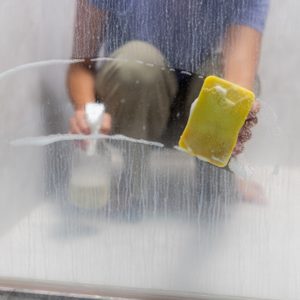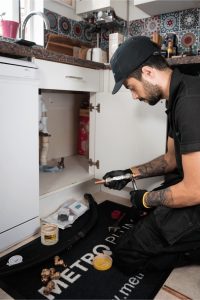Tackling Limescale: Choosing the Right Hard Water Solution for Your Home
- Home
- >
- Help & Advice Centre
- >
- Tackling Limescale: Choosing the Right Hard Water Solution for Your Home
Limescale is a familiar frustration across much of the UK. From furred-up kettles to broken-down boilers, the impact of hard water is both widespread and costly. If you’ve found yourself overwhelmed by all the treatment options available—some promising miracle cures, others offering confusing advice—you’re not alone.
This guide aims to simplify your decision-making process by breaking down the key types of hard water treatment systems, including water softeners, water conditioners, and scale inhibitors. By comparing their function, cost, maintenance, and environmental impact, you’ll be better equipped to choose what’s right for your home.
 Understanding the Water Treatment Market
Understanding the Water Treatment MarketThe three main categories in hard water treatment are:
Each option comes with its own pros and cons, and there’s variation even within the categories. Let’s explore them in more detail.
Water softeners are the traditional choice for treating hard water. Brands like Kinetico and Harveys are well-known in this space. These systems remove calcium and magnesium from your water using a resin bed charged with sodium or potassium ions – a process called ion exchange.
Benefits:
Drawbacks:
Lifespan & Costs:
Environmental Impact:
Choose a water softener if you’re focused on true soft water, don’t mind the maintenance, and are prepared for the initial investment.
 Water Conditioners
Water ConditionersConditioners offer an alternative to softeners. Rather than removing minerals, they alter the way those minerals behave so that scale can’t easily form. There’s a range of technology used—from electronic and magnetic systems to sacrificial anode and alloy-based solutions.
How They Work:
Benefits:
Limitations:
Lifespan & Costs:
Prices range from £125 to £770, and most have no running costs.
Lifespans vary:
Environmental Impact:
Conditioners are ideal if you want a low-maintenance, eco-friendly solution that protects your entire plumbing system and appliances.
Often confused with conditioners, scale inhibitors are typically used to protect a single appliance, such as a boiler. These are compact, affordable devices that are often installed by default in new builds to meet building regulations.
How They Work:
Benefits:
Limitations:
Cost:
Environmental Impact:
Inhibitors are best for those on a tight budget who simply want to safeguard essential appliances rather than treat the whole home.
To make the right choice, consider your priorities:
Want water that feels soft and prevents all scale?
A water softener is your go-to – if you’re fine with the cost, size, and maintenance.
Looking for an eco-friendly, low-maintenance solution?
A water conditioner is ideal – especially alloy-based systems with long lifespans.
Need basic, budget-friendly protection for a single appliance?
A scale inhibitor may be enough – though it won’t help elsewhere in the home.
Hard water may be a fact of life in much of the UK, but limescale doesn’t have to be. By understanding the different treatment options, each with its strengths and weaknesses, you can find the right system for your home, your budget, and your values.
For those prioritising sustainability and low effort, consider a passive solution like the Halcyan Water Conditioner. And whatever you choose, make sure it aligns with your goals – whether that’s soft-feeling water, energy efficiency, or peace of mind.